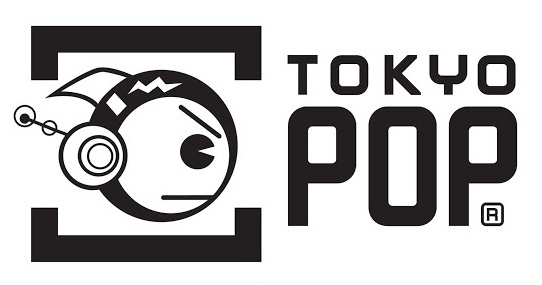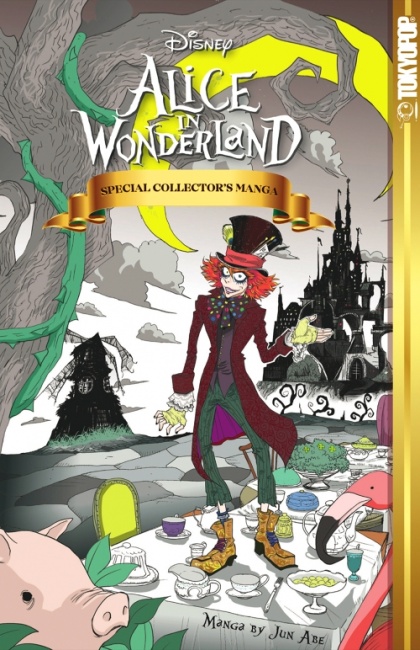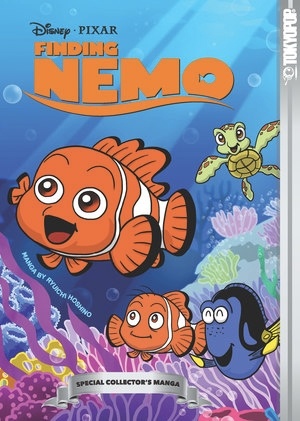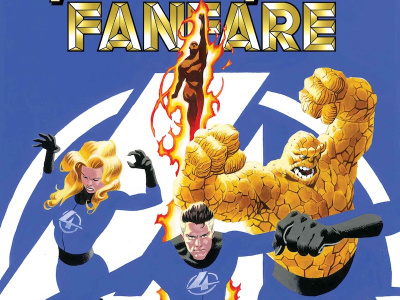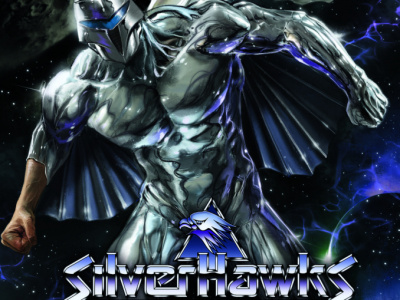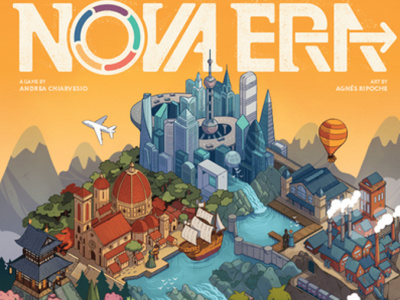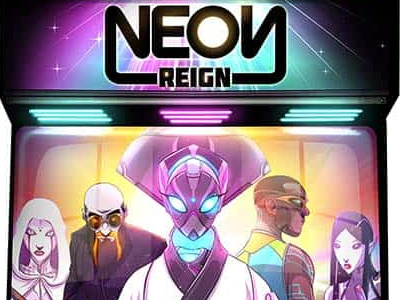Tokyopop, the company that spurred the explosion of manga in the U.S. in the 00s and then had to shut down in 2011 (see “Tokyopop Closing”), recently announced that it was going to publish three manga volumes tied to Disney properties (see “Tokyopop Releasing ‘Collector’s Manga’ for ‘Alice in Wonderland’ and ‘Finding Nemo’”). We caught up with Tokyopop CEO Stu Levy to talk about the company’s return to North American publishing.
Tell us about your decision to get back into publishing.
It’s been a fascinating and rewarding ride. It’s been really interesting to see how the market has evolved over the years.
When the company first struggled in 2008, when the market started to crash and the economy started to crash, the writing was on the wall with Borders and other retailers, chains in particular, that it wasn’t going to be a pretty picture at the end.
We were doing our best to pivot, as quickly as we could, to digital, with a lot of resistance from our licensors in Japan. They’re very conservative and they weren’t sure how digital was going to play out so they didn’t want to commit to anything. So we had a tough time trying to move the business in any direction other than continuing to publish.
Retail in the U.S. was tough in early 2011 when Borders went under. We were hoping we could pivot out of it before that happened, but we couldn’t and got caught in that mess and stopped publishing at the time. To be frank, I was frustrated with what was happening in the publishing business and at the time, I didn’t think I would be publishing books again.
I love book content, and I love content in general. People who know me know that I think of these stories as the characters and the concepts and worlds that they live in. I don’t think of manga and graphic novels as a medium, per se, I think of it as an experience, and whether that experience happens on the printed page or in a digital form or on the screen, or on your phone, what really matters is the storyteller and the audience—are they connected? At Tokyopop, did we need to be in a printed publishing business for us to accomplish our goal of connecting Japan, and Asia at large, with the West and Hollywood? We didn’t need to be. Clearly that was a platform that was very near and dear to our hearts because of the origin of manga, but what can you do? If the business model is not viable, it’s not viable.
I didn’t think that there would be a chance or a way to come back into the business at the time, but over the past five years being on the sidelines, I watched things evolve. I watched our German company, which has done a tremendous job, year-to-year growth that feels unbelievable….
So they never went through the Crash?
They not only didn’t go through the Crash, they exploded afterwards. They’ve just done incredibly well. They’re not only the strong #2 in the comic book market overall in Germany, they’re probably going to be #1 very soon. The year-to-year growth is over 25% annually for the past four years.
I’ve watched that, and I’ve watched how fans are willing to pay money for something special, for something that they love. And I’ve watched that here in the U.S. I’ve watched IDW, I’ve watched Dark Horse, I’ve watched Yen Press, I’ve watched VIZ, of course, these other companies that were my peers for many years and did not get taken down with the mess that we got taken down with. I’ve watched them not only survive, but thrive and flourish, because I think two things are different. One is that fans of graphic novels, for the larger meaning of that term (so including manga and comic books, whatever flavor of graphic novel you want to say), know how to educate themselves very effectively now. Back when we first started an Authentic Manga campaign and standardized manga, at the time the point was how do we get fans to evaluate the content based on the story, as opposed to worrying about what’s the price, what’s the format, thinking too much about the distraction of the bell and whistle. That worked at the time, and it also worked well with chain stores and retail distribution. But since that time, I think fans have gotten more sophisticated. They not only know how to evaluate the stories, they also prefer to have special editions. Sometimes they may want something to be lower price, sometimes they’re not only OK with, but they even prefer spending more money for something special. Having what I would consider more of a differentiated, sophisticated market has allowed graphic novels to flourish.
The second point is, I was wrong because I thought the future was going to happen quicker when it came to digital. And there’s a 2a and 2b. 2a is that I digest all of my content digitally, and because of that, I just assumed everybody else would. What happened is a lot of people who are even a lot younger than me, actually prefer print to digital. I didn’t anticipate that.
You thought it would be like music.
Yes, and 2b is that the key difference between books and music and video is the end experience of the user with video and music has not changed based on digitalization of the delivery mechanism. You’re still listening through speakers or headphones; you’re still watching through your eyes on a screen. Whether that comes from a DVD or a CD or that comes from Internet doesn’t change the end experience, whereas reading on the screen vs. reading on the printed page is not just a delivery difference, it’s an end experience difference. That’s a big differentiating factor between books and music and video.
My belief had always been, to throw out my little vision for the future, that there will be a time (and it doesn’t exist yet) where can have a piece of paper like this right here, where the words on this page will almost ‘magically’ change to other words on the page through digital technology, with the exact texture of paper, and the exact luminosity and the exact reflection of light and all those kinds of things. Not just emulate ink and paper, but literally be the exact same experience. Remember when photos went from film to digital cameras, and you could kind of tell to the point where you could literally not tell anymore? I know at some point we will have that. You’ll be able to rip the paper and it’ll be so cheap that it doesn’t matter and it will all be digital and so at that point, why are you going to buy 800 of these when you can literally have the same exact experience. But that’s way further in the future than I ever thought it would be.
So you thought digital would advance more rapidly. How did that get you to where you are now, publishing Disney-licensed graphic novels?
There’s coming back to print publishing, and there’s choosing content itself.
The coming back to print was that digital wasn’t ready…
Digital wasn’t ready and I felt the market kind of stabilized enough to do it.
I’m about to publish our first book. I really don’t know if the business model today is an attractive business model or not. I won’t know until I publish, but watching the other companies and our own company in Germany, I see that there is a way to be profitable but I don’t know how it’s going to be without a solid backlist.
Coming back into the business, our weakness is we don’t have 200 books or 500 books that have been big hits over the years that we could repurpose and really create a nice profit margin out of it. We’re coming off of a front list-only business, which is very expensive. Whether that will work financially or not, I don’t know. I’m willing to take the gamble. I think the timing is pretty good.
The second thing is the content. I love Japanese manga. I would love to be publishing the top 10 titles from Japan and a bunch of hidden gems, but Kodansha America does that, Viz does that, now Yen sold to Kadokawa. There just isn’t that pipeline that there used to be, so people don’t need me to go to Japan and find a hot license that nobody is familiar with. That’s not my role anymore and I know that. Sure, I’m still confident that because I still spend half of my time in Japan, I’ll always find something that people haven’t seen and there will be a time when I bring that, but I didn’t think it made sense for me to start this publishing in print back up with that approach.
Instead my solution is kind of like Korean tacos. In LA, where I’m from, the whole foodie truck craze was started by Kogi, the food truck that made Korean barbeque tacos. Out in LA where’s there’s a huge K-town, and obviously there’s a huge Mexican influence, we all love Mexican food, we all love Korean food, so this amazing young, entrepreneurial chef decided to combine the two. The rest is history and the food truck culture has kind of revolutionized the world.
To me that’s the epitome of fusion food done right, and I think what we’re doing with Disney manga is along those lines. It’s Japanese manga artists interpreting Disney characters and stories in a way that makes it uniquely manga, but it also retains the essence of Disney and the beloved characters that are a worldwide brand for a reason.
So whether it’s a Pixar story like Finding Nemo, or Tim Burton’s take on Alice in Wonderland, or an amusing and completely enjoyable, fun shojo manga take on a girl that visits all the different Disney princesses, we’re doing them as Disney manga that we think will appeal to manga fans. Obviously manga purists who will only read something that is 100% Japanese, this isn’t necessarily going to appeal to them (although it might), but for anybody who enjoys manga and doesn’t have a bias, they’ll love the art. For Disney fans, this is something that’s special. It’s very fresh, aesthetically gorgeous. And unless they’re so in love with the original character illustration that they don’t want anything different at all, I think it’ll really be appealing to them. And finally the third audience for us, the Gen-X parents who have familiarity with Japanese pop culture, they’ll get a kick out of this and it’ll be perfect for their kids who are of reading age.
What are your plans for additional titles beyond these first three?
We’re going to be putting out at least 20 SKUs next year, maybe a bit more. Right now we’re at one SKU a month and we’re probably be up to two a month through most of next year. I don’t know where it’ll go beyond that, I don’t know if we’ll go up to three, four, five a month or not. I just don’t want to cram books and content into the marketplace; I don’t think that’s healthy for anyone.
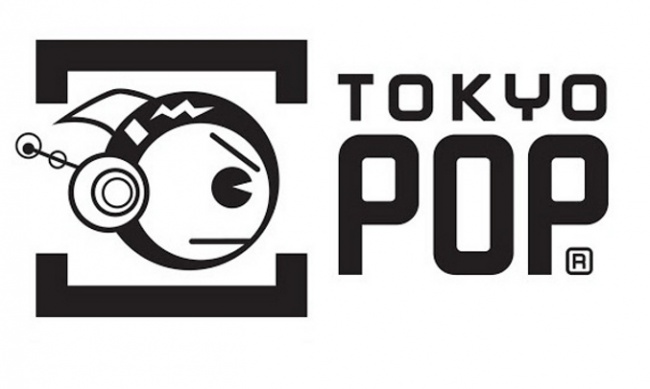
On Getting Back into U.S. Publishing
Posted by Milton Griepp on June 6, 2016 @ 2:18 am CT
MORE COMICS
Mark Waid, Dan Slott, J. Michael Straczynski, Alan Davis, Chip Zdarsky, More!
January 24, 2025
The lineup of past and current FF creators includes Mark Waid, Dan Slott, J. Michael Straczynski, Chip Zdarsky, and Alan Davis.
From Dynamite Entertainment
January 24, 2025
Here's a preview of SilverHawks #1, published by Dynamite Entertainment.
MORE NEWS
New Civilization-Building Game
January 24, 2025
CMON revealed Nova Era, a new civilization-building game.
New Dueling Card Game by Neon Knight Games
January 24, 2025
Chip Theory Games will release Neon Reign, a new dueling card game, into retail.



